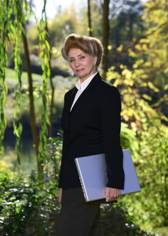Aquaponic - Mark Hasey
February 27, 2012
Aquaponics: A New Technology to Recycle Water and Feed a Rapidly Growing Population
An interview with Aquaponic Entrepreneur Mark Hasey on the Sharon Kleyne Hour Power of Water
Hear Sharon Kleyne's February 27, 2012 interview with Mark Hasey on demand on World Talk Radio, Voice America, Green Talk Network and Apple iTunes
Weekly report
"By 2050, Earth's population will have doubled. Sustaining this increased population will require twice as much water and twice as much food. One innovative technology, aquaponics, grows organic vegetables using only one-tenth the water of field crops, while also producing edible fish. The global possibilities of aquaponics for food production and water conservation are enormous. "Sharon Kleyne, host of the Sharon Kleyne Hour Power of Water syndicated radio talk show, is concerned about global water supply and food shortages in 2012, let alone 2050 when Earth's population is projected to have doubled. She finds innovative solutions such as "aquaponics," which combines "aquaculture" (fish farming) and "hydroponics" (growing crops in water), to be a rare bright spot in the global water and food outlook.

On February 27, 2012, Sharon Kleyne interviewed Mark Hasey, owner of The Farming Fish, an aquaponic vegetable and fish production operation in Rogue River, Oregon.
In response to Sharon Kleyne's question, Mr. Hasey explained that he started his career as a water management expert involved with managing lakes, streams, natural and artificial ponds, golf course water hazards and waste management settling ponds. In his work, he began experimenting with "vegetative filtration" (also called "bio-remediation,") in which plants are used to filter and clean the water. This led to using food plants as filters, which could then be harvested.
Mr. Hasey eventually contacted Dr. James Rakocy, at the University of Virgin Islands, who was experimenting with "aquaponic" systems combining aquaculture and hydroponics.
The Farming Fish operation in Rogue River, Oregon, according to Mr. Hasey, is one of the few aquaponic systems designed to operate on a commercial, for-profit scale. The greenhouse is 30 feet wide and 265 feet long and it grows organic lettuce and tilapia fish, with a harvestable lettuce crop every six weeks. Ninety-percent of the tilapia, which is becoming increasingly popular in the United States, is currently imported from China.
Sharon Kleyne had high praise for Mark Hasey as a "social entrepreneur," which is a for-profit business that also makes the world better. She also had high praise for the high nutrient density and water conservation benefit (the water is continually recycled) in Mr. Hasey's lettuce.
According to Mr. Hasey, in a typical Aquaponic system, the fish are raised in rearing tanks, whose water will eventually become toxic to the fish due to accumulation of excrement and food waste ("effluent'). Effluent bearing fish water is pumped from the fish rearing tanks to the hydroponic beds where the lettuce roots extract the effluent as nutrition, thus cleansing the water. The clean water is then returned to the fish tanks (there is considerably more to the system but those are the basics) (Rakocy, 2010).
Sharon Kleyne inquired about how crops were marketed. Mr. Hasey stated that he sells the lettuce and fish locally at farmers markets but has also had numerous inquiries. Lettuce is sold with the roots intact and could theoretically be replanted by the purchaser.
Mr. Hasey noted that he could grow numerous other food plants and that the decision will be largely guided by customer demand.
Website: www.thefarmingfish.com.
The Sharon Kleyne Hour Power of Water is broadcast live on Mondays, 10 a.m., PST/PDT. The syndicated talk show is heard on Voice America/World Talk Radio, Green Talk Network and Apple iTunes. Go to www.SharonKleyneHour.com for written summaries and on-demand replays.
Source:
Rakocy, J, PhD, "Aquaculture - Aquaponic Systems," University of the Virgin Islands Agricultural Experiment Station, 2010.
© 2012 Bio-Logic Aqua Research (137).
 Sharon Kleyne
Sharon Kleyne